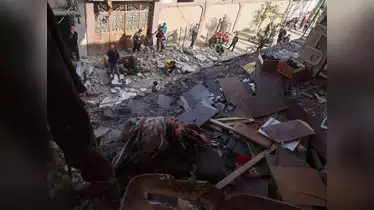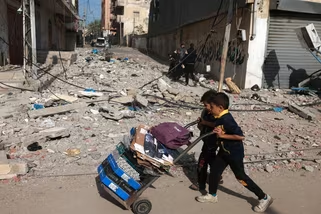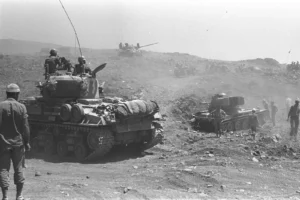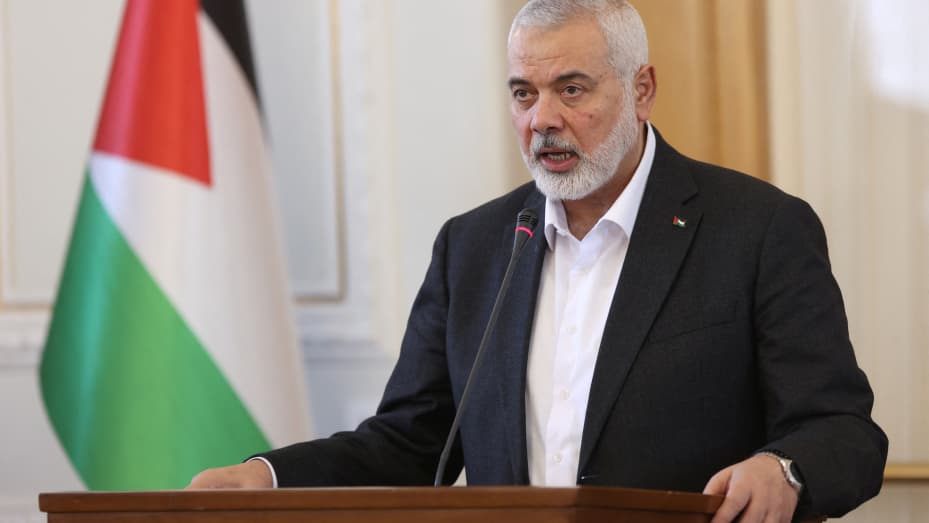In a significant development, Hamas leader Ismail Haniyeh was assassinated in Iran during the early hours of the morning, as announced by the Palestinian militant group Hamas on Wednesday. The group described the incident as a “severe escalation,” asserting that such actions would not deter their resolve.
Iran’s Revolutionary Guards confirmed Haniyeh’s death just hours after he had attended the swearing-in ceremony for the country’s new president. The Guards stated that they are currently investigating the circumstances surrounding the assassination. As of now, there has been no immediate comment from Israeli authorities.
The White House also did not provide an immediate response to requests for comment regarding Haniyeh’s assassination. This incident comes less than 24 hours after Israel claimed to have killed a Hezbollah commander linked to a deadly attack in the Israeli-occupied Golan Heights. The killing of Haniyeh seems to further complicate the prospects of an imminent ceasefire agreement in Gaza.

Senior Hamas official Sami Abu Zuhri condemned the Hamas leader killing, describing it as a “grave escalation” aimed at breaking the will of Hamas. He emphasized that the group remains committed to its path, expressing confidence in its ultimate victory.
Haniyeh, a prominent figure in Hamas’ international diplomacy, was typically based in Qatar. The ongoing conflict, which erupted following a Hamas-led attack on Israel on October 7, has seen Haniyeh navigate between Turkey and Qatar’s capital, Doha, circumventing travel restrictions imposed on the Gaza Strip. His mobility allowed him to serve as a negotiator in ceasefire discussions and maintain ties with Hamas’ ally, Iran. Haniyeh had been appointed to Hamas’ top leadership position in 2017. He tragically lost three of his sons in an Israeli airstrike in Gaza during the recent conflict.
Brief History of the Tensions Between Iran and Israel
The longstanding hostility between Iran and Israel is rooted in deep-seated ideological and geopolitical conflicts. The animosity began to escalate after the 1979 Iranian Revolution, which transformed Iran into an Islamic Republic with a vehemently anti-Israel stance. Iran’s new leadership viewed Israel as a symbol of Western imperialism in the Middle East and a threat to the Islamic world. Over the years, Iran’s unwavering support for groups like Hamas and Hezbollah, which are labeled as terrorist organizations by Israel and much of the international community, has further exacerbated tensions. These groups, receiving financial and military aid from Tehran, have frequently targeted Israeli civilians and military installations, creating a cycle of violence and retaliation.
Israel, in response, has engaged in preventive measures, including targeted killings and acts of sabotage, to counter Iran’s influence and potential nuclear capabilities. One of the most notable incidents was the assassination of Iranian nuclear scientist Mohsen Fakhrizadeh in November 2020. Widely believed to be orchestrated by Israel’s intelligence agency, Mossad, this assassination was a significant blow to Iran’s nuclear program. Fakhrizadeh was regarded as the mastermind behind Iran’s nuclear ambitions, and his death underscored Israel’s commitment to preventing Iran from developing nuclear weapons.
Historically, the 2006 Lebanon War is another example of the conflict’s intensity, where Israel fought against Hezbollah, a Shiite militant group backed by Iran. The war was marked by heavy rocket fire into Israel and extensive bombings in Lebanon, resulting in significant casualties and destruction on both sides.
More recently, the shadow war between Israel and Iran has extended to cyberspace and beyond. In April 2021, a major blackout occurred at Iran’s Natanz nuclear facility, which Iran blamed on Israeli cyber-sabotage. Such incidents highlight the covert nature of the ongoing conflict, where both countries engage in clandestine operations to undermine each other’s strategic interests.
The Hamas Leader Killing in Iran, if linked to Israeli operations, would represent a further escalation in the already volatile relationship between the two nations. This complex and multifaceted conflict continues to shape the political landscape of the Middle East, with each side vigilant against the other’s maneuvers.

Events leading up to Hamas Leader Killing
1948 Arab-Israeli War
Also known as the War of Independence, this conflict began immediately after Israel declared independence on May 14, 1948. Neighboring Arab states, including Egypt, Jordan, Syria, Iraq, and Lebanon, invaded the newly declared state. The war resulted in the establishment of Israel’s sovereignty but also led to significant territorial gains beyond the UN’s partition plan. The armistice agreements of 1949 left Israel in control of much of Palestine, with Jordan and Egypt occupying the West Bank and Gaza Strip, respectively. The war also caused a significant Palestinian refugee crisis, with hundreds of thousands of Palestinians displaced.
1956 Suez Crisis
Triggered by Egypt’s nationalization of the Suez Canal, Israel, along with the United Kingdom and France, launched a military campaign against Egypt. The conflict aimed to regain Western control over the canal and to remove Egyptian President Gamal Abdel Nasser. Israel successfully captured the Sinai Peninsula but was pressured by the United States and the Soviet Union to withdraw, leading to the deployment of a United Nations peacekeeping force.
1967 Six-Day War
In June 1967, Israel launched a preemptive strike against Egypt, Syria, and Jordan in response to escalating tensions and the mobilization of Arab forces. Within six days, Israel captured the Sinai Peninsula, the West Bank, East Jerusalem, and the Golan Heights. This war dramatically altered the geopolitical landscape, with Israel significantly expanding its territory. The occupation of these areas has remained a contentious issue in the Israeli-Palestinian conflict.

1973 Yom Kippur War
On October 6, 1973, Egypt and Syria launched a surprise attack on Israel during Yom Kippur, the holiest day in Judaism. Despite initial setbacks, Israel repelled the invasion and eventually crossed into Egyptian and Syrian territories. The war led to increased American involvement and a subsequent arms supply that helped Israel regain its footing. The conflict ended with a ceasefire brokered by the United States and the Soviet Union.

Recent Conflicts Between Gaza and Lebanon
In recent years, Israel has faced multiple conflicts with non-state actors like Hezbollah and Hamas. The 2006 Lebanon War involved a month-long military campaign against Hezbollah following the abduction of Israeli soldiers. In Gaza, multiple conflicts, including the wars of 2008-2009, 2012, 2014, and subsequent escalations, have been marked by rocket fire from Gaza and Israeli airstrikes. These conflicts highlight Israel’s ongoing security concerns and the complexities of its relationships with neighboring territories.
Each of these wars has left a profound impact on the region, shaping Israel’s security policies and its approach to diplomacy and military strategy. The legacy of these conflicts continues to influence the geopolitical landscape of the Middle East.
Actions of Hamas on 7th October
On October 7th, Hamas launched a coordinated attack on Israel, resulting in significant casualties and On October 7, 2023, Hamas launched a highly coordinated and devastating attack on Israel. The assault began early in the morning with a barrage of rockets, followed by incursions by land, sea, and air. Hamas fighters breached Israel’s borders using paragliders, motorboats, and ground infiltrations, targeting civilian and military sites. This surprise attack resulted in over 1,400 deaths, predominantly civilians, making it one of the deadliest days in Israel’s history.
The attack, described as “Operation Al-Aqsa Flood,” overwhelmed Israel’s defense systems and caused widespread chaos. Hamas militants not only launched rockets but also engaged in direct combat with Israeli forces and civilians, leading to numerous casualties and abductions. The event has been widely condemned and has exacerbated the ongoing conflict, leading to a severe Israeli military response and a humanitarian crisis in Gaza.
Reports highlighted that during the assault, there were instances of severe violence, including sexual assault and killings, further intensifying the conflict’s brutality. The attack was a significant escalation in the Israel-Palestine conflict, drawing international attention and condemnation. The situation has led to increased military actions from Israel, targeting Hamas infrastructure in Gaza and sparking global concern over the humanitarian impact on civilians
The Reaction by Israel and its Army and Air Force
Some might be calling Israel’s response a little extreme. But Netanyahu and the team are not fazed by the world media and their reactions. They have been dealing with this situation just like they know how to. In another shocking event, MOSSAD, the infamous Israeli spy agency (allegedly) have a role to play in the Hamas Leader Killing in Tehran.
On August 1, 2024, a Hamas leader killing was to take place in Tehran, Iran, in a covert operation that has been attributed to Israel’s intelligence agency, Mossad. The assassination occurred shortly after Haniyeh attended the inauguration of Iran’s new president, Masoud Pezeshkian. According to reports, Haniyeh was targeted by a projectile, possibly a missile or drone, at a residence in northern Tehran.
Haniyeh, based in Qatar, was a key figure in Hamas’ international diplomacy. His assassination follows a series of recent escalations in the region, including Israeli strikes against Hezbollah in Lebanon and increased violence in Gaza. The Israeli government has not officially commented on the operation, maintaining its usual policy of ambiguity regarding clandestine missions.
The assassination has significant geopolitical implications, particularly concerning the Israel-Iran rivalry. Analysts have noted that the operation showcases Israel’s extensive espionage capabilities within Iran. The event also raises questions about Iran’s internal security, especially given the high-profile nature of the attack amidst heightened security for the presidential inauguration.
The reaction after the Hamas leader killing was swift, condemning the act as a “grave escalation” and vowing to continue their resistance. The group remains confident in its cause, despite the loss of a prominent leader. The incident further complicates the already volatile situation in the Middle East, potentially diminishing the prospects for a ceasefire in Gaza and exacerbating tensions between Israel and its adversaries in the region.
Our Opinion
The crimes perpetrated by Hamas on October 7th can only be described as being disgusting. But then, what else can you expect from Islamists, right? Today, they are being portrayed as the victims of war crimes committed by Netanyahu and The IDF. In reality, all they want is violence. If we knew didn’t know any better, we would be the first ones to condemn Israel and what they are doing in some parts of Gaza right now.
However, as Indians, we have lost thousands of lives to terrorist attacks, human bombs, RDX blasts, lone wolf attacks, and whatnot. We still stand by Israel because we know the pain of losing a loved one knowing they made no mistake and their lives were snatched from them just because some idiot in some part of the world read the words of “JIHAAD” and started learning how to make bombs at home.
Every civilized country in the world is suffering because of its immigrant issues. France, Italy, Sweden, Norway, UAE, UK, USA, Germany, Israel India, Pakistan, oops, sorry, not Pakistan. They only supply terrorism. But seriously, every other country mentioned above is sick of these attacks from Islamists and they have gone too far. They come from places where there is no democracy. They apply for visas saying they have no rights and they are scared for their families and their lives. But once they enter a DEMOCRATIC nation, they try their level best to turn that country into a SHARIAH-abiding nation. The logic behind this mentality? JIHAD. One word is enough.
We are fed up of their attitude towards other religions and it is high time someone starts taking some serious actions. Otherwise, the highly democratic world would soon turn into a world full of autocracies. Also, the Hamas Leader Killing shows India how to deal with our terrorist neighbors.
Stay tuned for more updates on the Israel-Palestine struggle.
Till then
This is New India
Signing Off…

Leave a Reply